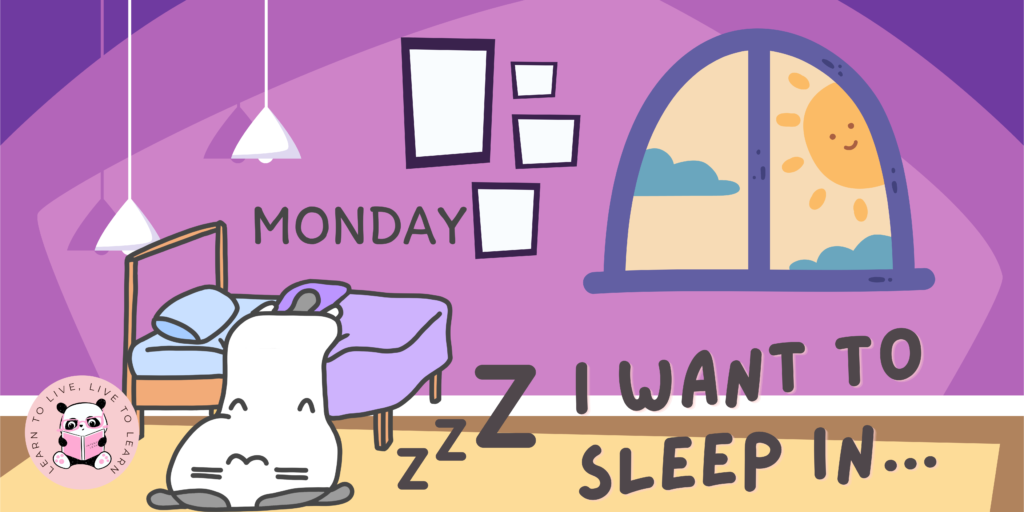Is Goal-setting Essential For A Meaningful Life
Written by Michelle Ong | January 22, 2024 | Productivity

Do we really need goals, or can we achieve our dreams without a plan? Let’s explore whether goal-setting is essential for a meaningful life.
How we view goals often depends on our personality, lifestyle, and sense of purpose. In our busy lives, it’s easy for some of us to skip setting goals. Some feel just getting by and enjoying life is enough, making goals seem unnecessary. Others see it as a pointless exercise with no real commitment. But do we really need goals, or can we achieve our dreams without a plan? Let’s explore two perspectives—whether goals are crucial or less useful.
Why Goals Can Benefit You
1. Focus
The number of thoughts we have each day varies from person to person and is influenced by factors like how our mind works and our mental state. Research shows this can range from thousands to tens of thousands of thoughts. So, it’s important to develop the ability to concentrate, resist distractions, and overcome procrastination.
Goals are powerful tools that help us figure out and focus on what really matters. They give us a structured plan to turn our thoughts into actions, making us more determined to chase our dreams. They act as motivators, reminding us of the deeper meaning behind our actions and guiding us toward what we want.
Think of goals as road markers, guiding and bringing our intentions into reality. They organize our thoughts, direct our thinking, and help us visualize what we want to achieve. Setting goals allows us to reflect on what we really want and aspire in life, preventing us from moving in circles or facing indecision.
2. Prioritize Resources
Our time, energy, and focus are limited. Thus, goals serve as a vital compass in managing these limited resources. They help direct how we allocate these invaluable resources toward things that align with our aspirations. So, we don’t waste time and energy on things that don’t bring results.
Clear goals help us prioritize tasks, and encourage strategic planning to ensure that our efforts are meaningful. This intentional focus not only improves productivity but also keeps us away from distractions, steering us toward growth, achievement, and fulfillment.
3. Encourage Preparedness
Living without goals is like wandering without a clear destination. Goals promote a structured and intentional approach to life, enabling us to anticipate and prepare for challenges. They help maintain emotional balance by allowing us to stay in control of how we react. Defining goals involves proactive planning, guiding our thoughts, actions, and decisions. This encourages preparedness and the charting of a clear roadmap to our desired outcomes.
You might want to check out this post on how to make goals meaningful and embrace goalful living.
4. Stay Accountable
Setting specific and measurable goals and externalizing them, whether by writing them down, using progress tracking apps, or sharing them with accountability partners, provides a tangible framework to measure efforts. This not only enhances commitment but also encourages consistent effort. In essence, setting and documenting goals create a self-imposed standard, establishing clear benchmarks for progress and success, motivating us to stay accountable in our pursuit of success.
Check out these related posts on goal-setting principles and methods that can boost productivity and prepare you for success.
5. Why Goal-Setting Can Be A Waste Of Time
The effectiveness of goals depends largely on your perspective. If you think that they are a waste of time, your mindset and actions may make them ineffective. Conversely, if you see goals as essential tools for guiding and charting your progress, holding yourself accountable, and doing whatever it takes to achieve them, then they become valuable.
Now, let’s explore why some may think that goals are unnecessary. Often, these individuals lack experience in driving and achieving goals, so they don’t see the value of goals in their lives.
1. Too Preoccupied With Life
For those who are always reacting to life’s unfolding events and cannot focus, setting goals might seem pointless. If you are preoccupied with handling life’s challenges and are overloaded with responsibilities, the thought of setting goals might not even come up. Considering whether goals are important or taking time to define and plan them might feel like an afterthought in the constant rush of dealing with life’s ups and downs.
2. A Paper Exercise
Some may see goal-setting as just a paper exercise, possibly because they don’t understand its importance. They might not even plan to take real action and could treat it as a “set and forget” task, thinking it doesn’t work.
A firm belief that goal-setting is ineffective may also play a role. Personal experiences, like not achieving goals or facing repeated failures, can strengthen this perspective. Being around people who share this skepticism and haven’t achieved their goals can also reinforce the idea that setting goals doesn’t lead to success.
3. Don’t Identify With The Goals Set
Not believing in the goals can make us doubt our ability to achieve them, making it more likely to give up before starting. If actions are taken, they might feel weak and lack real commitment. This happens when the goals don’t match our core values or interests.
External pressures, like peer influence or workplace expectations, may push us to set goals that don’t resonate with our beliefs, dreams or interests. This clash between what others expect and our internal feelings can make us feel disconnected and reluctant to pursue those goals wholeheartedly.
4. Lack Commitment
“Success is the sum of small efforts, repeated day in and day out.”
Robert Collier
When we hesitate to commit to the goals we set, it typically indicates an unwillingness to invest the necessary effort for success. This hesitation likely arises from perceiving the effort as not worthwhile, leading us to take limited action, stop at the first sign of problems and give up.
However, meaningful change and results require dedicated, consistent effort. So instead of expecting goals to be achieved easily or relying on luck, it is crucial to recognize that sustained dedication and resilience are needed for real accomplishments. Success does not happen instantly; consistent effort is necessary.
5. Fear Of Failure
Some people fear failure, dislike pressure, and have a low tolerance for stress. Because of this, they are unwilling to try or put in significant effort. They justify their inaction by believing that avoiding effort and time investment will protect them from failure. This thinking is based on the idea that if you don’t try, you won’t fail. Unfortunately, this self-imposed limitation becomes a barrier, causing them to give up before even giving the endeavor a chance.
6. Restrict Freedom
Some are contented with living without goals, considering it unburdened and allowing each day to unfold naturally. For some, goals seem like limitations and unnecessary stress, advocating for a carefree and unrestricted approach to life. They believe that setting goals might make each day less spontaneous, preferring a more relaxed and stress-free lifestyle.
What Will You Choose?
“The tragedy of life doesn’t lie in not reaching your goal. The tragedy lies in having no goals to reach.”
Benjamin Mays
The choice of your path is in your hands—whether with goals or without. What matters is to focus on what you truly value and let that guide your decision. Embrace your choice and find contentment in the meaning you create in your life.
If you are ready to unlock the full potential of your goals, check out this post for tips on making them a game-changer on your path to success, and explore this post for a step-by-step blueprint to shape your dream life.
If you found value from this article, please like and share it with others!


